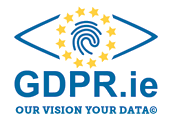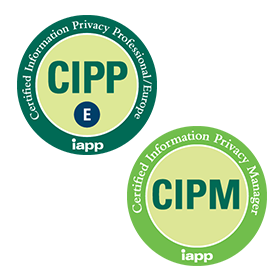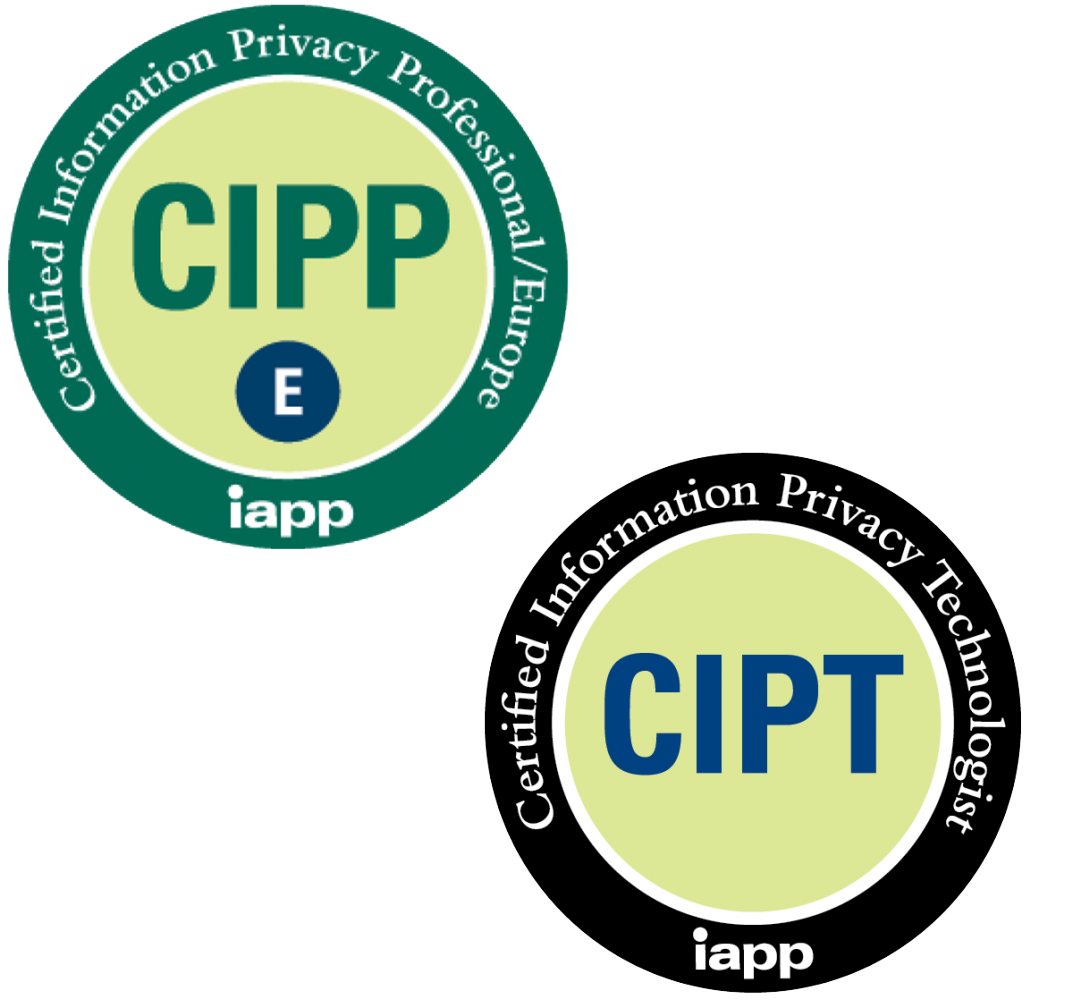Description
This training is an opportunity to learn about critical privacy concepts that are also integral to the CIPP/E & CIPM exam. While not purely a “test prep” course, this training is appropriate for professionals who plan to certify, as well for those who want to deepen their data protection knowledge. Both the training and the exam are based on the same body of knowledge.
Modules & Course Outline CIPP/E
Module 1: Data protection laws
Introduces key European data protection laws and regulatory bodies, describing the evolution toward a harmonised legislative framework.
Module 2: Personal data
Defines and differentiates between types of data as defined by the GDPR, including personal, anonymous, pseudonymous and special categories.
Module 3: Controllers and processors
Describes the roles and relationships of controllers and processors as defined by the GDPR.
Module 4: Processing personal data
Defines data processing and GDPR processing principles, explains the application of the GDPR and outlines the legal grounds for processing personal data.
Module 5: Data subject rights
Describes data subject rights, applications of rights, and controller and processor obligations as set out in the GDPR.
Module 6: Information provision obligations
Explains controller obligations for providing information about data processing activities to data subjects and supervisory authorities as set out in the GDPR.
Module 7: International data transfers
Outlines options and obligations under the GDPR for transferring data outside the European Economic Area, including adequacy decisions and appropriate safeguards and derogations.
Module 8: Compliance considerations
Discusses the applications of European data protection laws, legal bases and compliance requirements for processing personal data in practice, including employers processing employee data, surveillance, direct marketing, and internet technology and communications.
Module 9: Security of processing
Discusses considerations and duties of controllers and processors for ensuring the security of personal data and GDPR specifications for providing notification of data breaches.
Module 10: Accountability
Investigates accountability requirements, including data protection management systems, data protection impact assessments, data protection policies and the role of the data protection officer.
Module 11: Supervision and enforcement
Describes the role, powers and procedures of supervisory authorities; the composition and tasks of the European Data Protection Board; the role of the European Data Protection Supervisor; and remedies, liabilities and penalties for noncompliance as set out in the GDPR.
Modules & Course Outline CIPM
Module 1: Introduction to privacy program management
Identifies privacy program management responsibilities and describes the role of accountability in privacy program management.
Module 2: Privacy governance
Examines considerations for developing and implementing a privacy program, including the position of the privacy function within the organisation, the role of the DPO, program scope and charter, privacy strategy, support and ongoing involvement of key functions and privacy frameworks.
Module 3: Applicable laws and regulations
Discusses the regulatory environment, common elements across jurisdictions and strategies for aligning compliance with organisational strategy.
Module 4: Data assessments
Relates practical processes for creating and using data inventories/maps, gap analyses, privacy assessments, privacy impact assessments/data protection impact assessments and vendor assessments.
Module 5: Policies
Describes common types of privacy-related policies, outlines components and offers strategies for implementation.
Module 6: Data subject rights
Discusses operational considerations for communicating and ensuring data subject rights, including privacy notice, choice and consent, access and rectification, data portability, and erasure.
Module 7: Training and awareness
Outlines strategies for developing and implementing privacy training and awareness programs.
Module 8: Protecting personal information
Examines a holistic approach to protecting personal information through privacy by design.
Module 9: Data breach incident plans
Provides guidance on planning for and responding to a data security incident or breach.
Module 10: Monitoring and auditing program performance
Relates common practices for monitoring, measuring, analysing and auditing privacy program performance.






